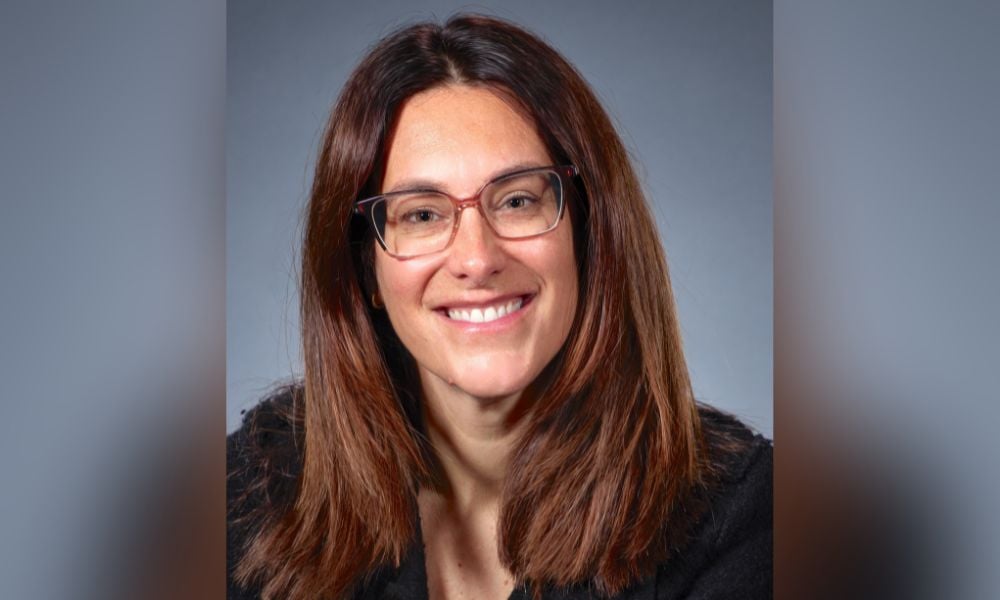Photo: Delbie Desharnais
Delbie Desharnais' in-house journey at TELUS began in 2011 when she worked on litigation matters for the company as external counsel. She had worked in private practice for over 10 years at the same firm in Montreal and had not actively pursued an in-house role.
"It was really a matter of seizing an opportunity for me. I was actually enjoying private practice," she recalls.
Desharnais said there was an adjustment at first, with a greater need for versatility. "You have to rely on different skill sets," she says. "I'm using leadership and human skills to foster a collaborative and positive environment. I have to think strategically and understand the business to be a trusted advisor, providing more than legal advice."
Five years after joining TELUS, she was promoted to associate general counsel in 2016, where she took on leadership of the national litigation team. Her role now extends beyond managing legal issues – she must build relationships across the company’s various business units and work closely with external counsel. "We support all business units enterprise-wide in civil and commercial litigation matters," she says.
Desharnais’ team consists of 11 members – five lawyers and five paralegals spread across Canada, from British Columbia to Quebec. They handle a wide variety of legal challenges, ranging from civil and commercial disputes to intellectual property claims and class actions. "We work closely with business units and other legal teams within the broader TELUS legal and regulatory affairs team to identify and mitigate risks," she explains. The team’s involvement in pre-litigation matters is crucial in preventing potential legal issues from escalating into full-blown disputes.
One of the defining aspects of Desharnais’ leadership is her focus on fostering a positive team culture. "We’re constantly adapting and learning, continuing to perform well, remaining flexible, and open to change," she says. Open communication and collaboration within her team are key to their success, and she takes pride in this approach. "We have a very collaborative and engaged team... we support each other incredibly well."
In-house legal work at TELUS also involves staying ahead of technological advancements, particularly in a company that places such a strong emphasis on innovation. Desharnais points out that technology is not just part of the business strategy – it’s embedded in their legal processes as well. "It is at the core of TELUS business strategy," she says. "TELUS has accelerated investments and digital infrastructures and services to meet the evolving needs of our businesses and consumers."
Her team is currently exploring ways to leverage emerging technologies, including generative AI, through TELUS’ legal innovation committee. “We support quite a wide variety of litigation and pre-litigation matters, and our portfolio continues to grow with the expansion of TELUS activities, especially with TELUS Health and TELUS Agriculture's growth and extension, both in and outside of Canada.”
But it’s not just about adopting new technology for the sake of it. Desharnais is pragmatic about how they use these tools and is clear about what she expects from external law firms working with TELUS. "We want them to be pragmatic and strategic, so they understand not only the legal aspects but also the business considerations," she notes. Collaboration is key, both within her team and with external partners.
As TELUS continues to grow, particularly with its ventures into health and agriculture, Desharnais’ role remains integral to managing the company’s complex legal landscape. Class actions remain a significant focus for her team. Desharnais says Quebec remains an active jurisdiction for class actions, which poses unique challenges for TELUS.
“When I look at the class actions that TELUS is facing and defending, there are 2.5 more class actions in Quebec than in the other provinces, which is different than our customer base in terms of proportion.”
For Desharnais, the challenge of navigating these legal waters is what makes the role fulfilling. She thrives in an environment that requires constant learning and adaptation, and it’s clear that her leadership is as much about managing people as it is about managing legal risks.





